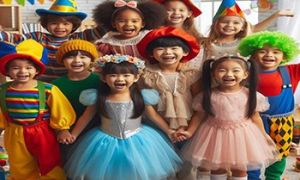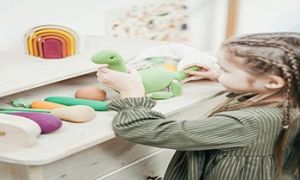Learning how to keep one’s own self safe and protected is a key aspect of growing up. Even young children can be taught about personal safety with the help of appropriate language and interactive strategies. The following article provides strategies for Educators to talk about personal safety with children.
“You Are The BOSS Of Your Body”
It is absolutely crucial that children know that no one is allowed to touch their bodies in a way that makes them uncomfortable. Indeed, paediatricians and doctors will often make it a point to mention how kids are the “boss” of their bodies at each annual physical exam. So children must never allow themselves to be touched by anyone who makes them feel uncomfortable, like someone using the pretext of playing, “doctor-patient”.
“Know Your Safe Adult Details”
Older children can be taught parents’ names and contact details so that they can ask for help when needed. For younger children, safety bands or cuffs can be crafted with the child’s Safe Adult phone number on the inside.
“Safe Grownups Don’t Ask Kids For Help!!”
Go over with children some of the uncomfortable things that unsafe people may say or do. For instance, they may pay a lot of attention to kids and even give them presents. They may be physical with kids even when kids ask them to stop. Unsafe people may also use inappropriate words to comment on how kids look or ask them to look for a lost puppy. Tell children that they are always to look for a safe adult and report such things said to them.
“Never Go ANYWHERE Or Take ANYTHING From Someone You Don’t Know”
One of the most common ways to harm children has been to lure them into going with or taking something from a stranger who turned out to be unsafe. Talk through what children can do in situations that involve strangers. For example, what if the manager at the skating rink asks the child to carry something out to his car? Then, act out and role-play the situations that involve people your child may know, too. In other words, what if an unfamiliar neighbour invites a child in for a snack? Or if a relative keeps asking a child for “hugs and kisses”?
“CHECK FIRST” With Your Safe Grownup For Permission
Reiterate as many times as necessary that it is imperative to check with parents/family before children go anywhere, change plans, or get into a car even if it’s with someone they know. There is considerable evidence now that abusers are often people known to the children. So while teachers should not entirely debunk the ‘stranger-danger’ notion, one way to explain who to watch out for is by talking about “tricky people”. For example, when teaching personal safety to young children you can say, “Most people are pretty good. But some people have problems and they’re not so good. It’s my job to protect you from them.” As kids get older, though, start to mention that they are in charge of their safety, too. And if they ever feel like someone, whether they know the person or not, is tricky, they can come to you to talk about it.
“Everybody’s Bathing Suit Areas Are PRIVATE”
Teach children about their bodies and also the correct language to use when describing their private parts. Emphasise that those parts are private. This will make them more at ease if they need to tell you about a touch that made them feel uncomfortable.
“You Don’t Have To Be POLITE If Someone Makes Me Feel Scared Or Uncomfortable”
Let children know it is okay to say NO, even to a grownup, if someone talks or behaves with them in a way that makes them uncomfortable. This is especially pertinent since children are used to being told to use their “inside voices” and “obey” adult figures like parents and educators. So, teach children that they have the right to say NO to any unwelcome, uncomfortable, or confusing touch or actions by others. Tell them to report to you immediately if this happens.
“Don’t Keep SECRETS… Especially If They Make You Feel Scared Or Uneasy”
It is very important that children know not to keep secrets that make them uncomfortable – especially if such secrets are to be kept from parents and teachers. Spend time and effort in building bonds of love and trust with children in your care so that they feel comfortable telling you anything, especially if it involves another adult. Encourage your children to identify other trusted adults they can talk to in confidence.
“If you ever get LOST in a public place, FREEZE & YELL or go to a Mom with Kids and ask for help”
Practice basic safety skills with children. Make an outing to a mall or a park a ‘teachable’ experience in which children can practice locating the adults who can help if they need assistance or check with a trusted adult before going to the restroom with a friend.
“Always Pay Attention To Your Special Inner Voice, Especially If You Get An “Uh-Oh” Feeling”
Empower children to listen and trust their instincts in case something seems “off” about a person, situation or behaviour.
Some other strategies educators can use to teach children about personal safety are:
- Modelling appropriate ways of engaging with children - Show in your behaviour that you respect children’s physical boundaries for example while it may ok to hug a distressed toddler, you can use high-fives or affectionate pats to show appreciation for older children.
- Involving parents – work towards establishing trust with families so that both sides can discuss safety procedures and trusted contacts. Re-assure families that their child’s safety is your highest priority. Being in touch with parents will also help you learn about the people with whom the child is spending time. Take notice if the child mentions that they have been getting a great deal of attention or receiving gifts from a certain individual. Take time to talk to the children and find out why the person is acting in this way.
- Embed safety into your service program - Personal safety isn’t something to just bring up once with children. It needs to be part of regular, calm discussions for children to practice safety and feel empowered about their well-being.
References:
- Slides Teaching Young Children About Personal Safety In ECE Programs, Early Childhood Webinars
- Protecting Our Kids Teaching Children about Personal Safety, Brave Hearts Australia
- Teaching Children About Personal Safety, Understood Organisations


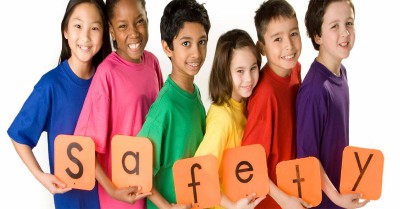

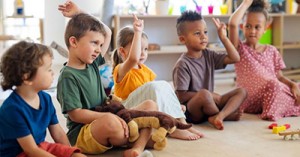
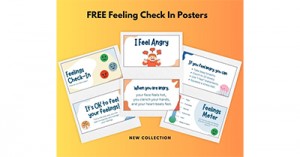

 Open ended questions cannot be responded to with one word answers such as yes or no. These types of questions enables a child to provide
Open ended questions cannot be responded to with one word answers such as yes or no. These types of questions enables a child to provide During your child’s preschool years, an important milestone begins to emerge. This is the development of pre-writing skills. Pre-writing skills are used to encourage, develop
During your child’s preschool years, an important milestone begins to emerge. This is the development of pre-writing skills. Pre-writing skills are used to encourage, develop Open ended materials enables children to play freely. They are objects that have no rules to follow, use or function. Raw materials that can be
Open ended materials enables children to play freely. They are objects that have no rules to follow, use or function. Raw materials that can be An Acknowledgment of the Country is a way of showing respect for the Traditional Owners and can be given by both non-Indigenous people and Aboriginal
An Acknowledgment of the Country is a way of showing respect for the Traditional Owners and can be given by both non-Indigenous people and Aboriginal Language plays an important role in a child’s development. It enables a child to communicate effectively with their family, learn at school, socialize with friends,
Language plays an important role in a child’s development. It enables a child to communicate effectively with their family, learn at school, socialize with friends, Like adults, children have to deal with their own stress in life. Moving house, starting a new school, preparing for a new sibling - these are
Like adults, children have to deal with their own stress in life. Moving house, starting a new school, preparing for a new sibling - these are Playdough is such a versatile material. It provides numerous benefits to children as they manipulate it, it is safe and soothing and provides children with
Playdough is such a versatile material. It provides numerous benefits to children as they manipulate it, it is safe and soothing and provides children with Teaching children about sustainability enables them to appreciate and respect the natural environment. Early childhood services can provide meaningful hand on learning experiences in order
Teaching children about sustainability enables them to appreciate and respect the natural environment. Early childhood services can provide meaningful hand on learning experiences in order Recycling is an important concept that teaches children to care for the environment. It encourages children to be responsible and show a growing appreciating for
Recycling is an important concept that teaches children to care for the environment. It encourages children to be responsible and show a growing appreciating for When children apply paint to paper, glue things together, or pound a lump of clay, they experiment with colour, shape design and texture.
When children apply paint to paper, glue things together, or pound a lump of clay, they experiment with colour, shape design and texture.

